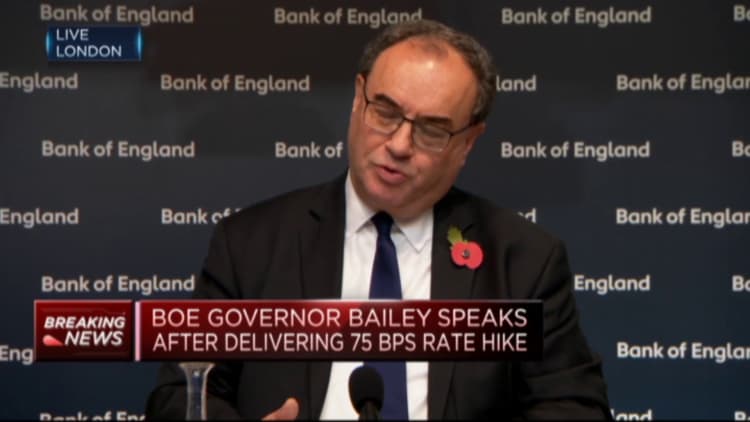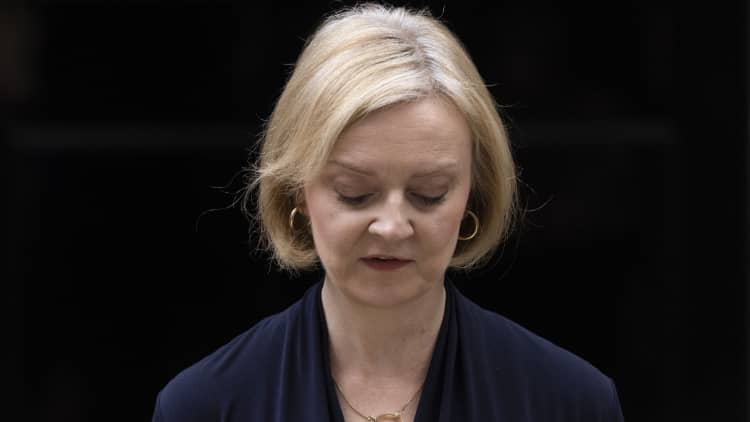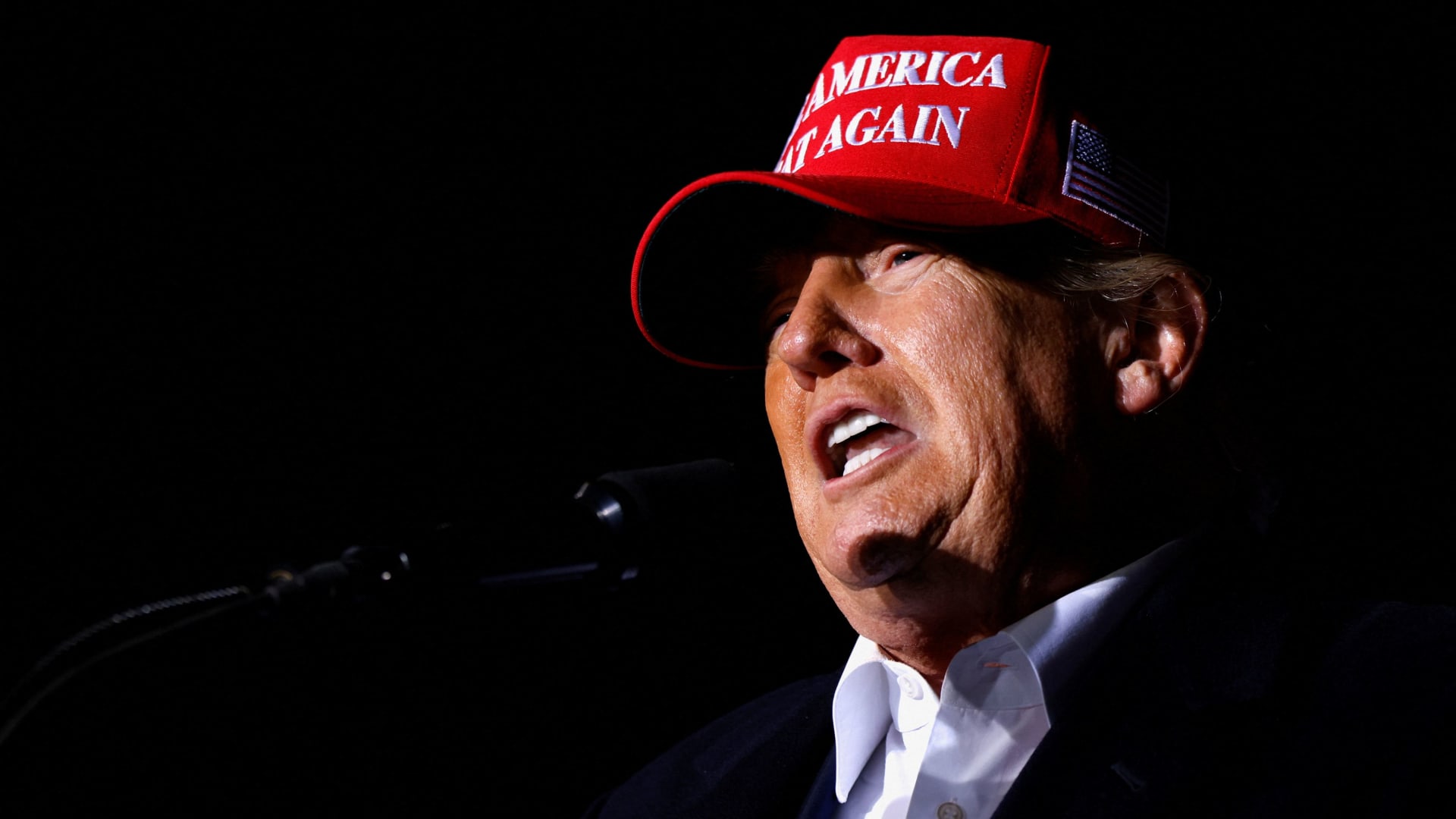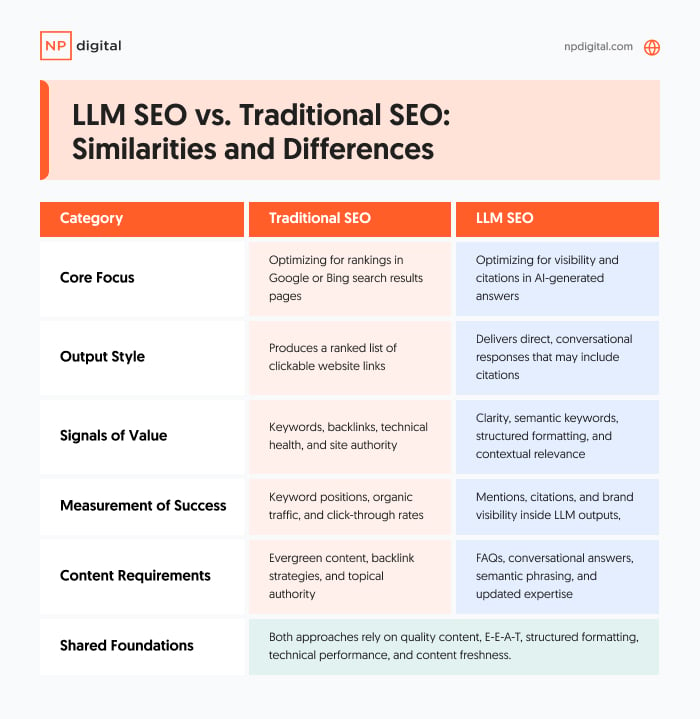UK faces longest recession since records began, Bank of England says
The Bank of England warned Thursday that the U.K. is facing its longest recession since records began, with the economic downturn expected to extend well into 2024.

The Bank of England hiked its benchmark interest rate by an historic 75 basis points Thursday — its largest increase since 1989.
Toby Melville | Afp | Getty Images
LONDON — The Bank of England warned Thursday that the U.K. is facing its longest recession since records began, with the economic downturn expected to extend well into 2024.
The central bank described the outlook for Britain's economy as "very challenging," noting that unemployment would likely double to 6.5% during the country's two-year slump.
U.K. GDP is projected to decline by around 0.75% over the second half of 2022, reflecting the squeeze on real incomes from surging energy and tradable goods prices, the Bank said.
Growth is projected to continue to fall throughout 2023 and the first half of 2024, as "high energy prices and tighter financial conditions weigh on spending," it added.
The forecast, outlined at the Bank's Monetary Policy Committee meeting Thursday, would constitute the country's longest — though not deepest — recession since the 1920s when reliable records began.

Historic 0.75% rate hike
The projections come as the BOE raised its benchmark interest rate by a historic 75 basis points Thursday — its largest increase since 1989.
The MPC voted 7-2 in favor of the decision, taking baseline borrowing costs from 2.25% to 3%.
The eighth consecutive rate hike marks the central bank's continued efforts to tame rampant U.K. inflation, which hit a 40-year high of 10.1% in September, and edge costs down toward its 2% target.
The BOE said it expected inflation to remain above 10% through the end of 2022 and into the first quarter of 2023, before falling back.
However, the Bank also struck a dovish note against the backdrop of weakening economic growth and shifting fiscal policy, noting that future rate increases were likely to be less aggressive than expected.
"Should the economy evolve broadly in line with the latest Monetary Policy Report projections, further increases in Bank Rate may be required for a sustainable return of inflation to target, albeit to a peak lower than priced into financial markets," the MPC said.
The British pound plunged on the announcement to trade around $1.118, while U.K. government bond yields rose. As of 2.30 p.m. local time it was trading at $1.1196.

The BOE's forecasts are especially hard to piece together given the government's as yet unclear fiscal strategy, more details on which are set to be announced on Nov. 17.
The Bank was forced to intervene in financial markets in September, launching an emergency bond-buying operation after then-prime minister Liz Truss' contreversial mini-budget sparked economic chaos.
With recently installed Prime Minister Rishi Sunak now in office, and Finance Minister Jeremy Hunt having walked back most of his predecessor's proposed tax cuts, fiscal and monetary policy no longer seem to be pulling in opposite directions.
—CNBC's Elliot Smith contributed to this report.

 Konoly
Konoly 
































